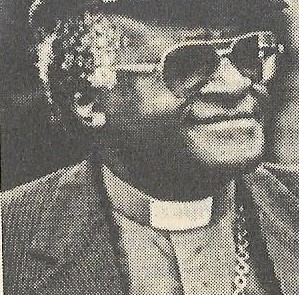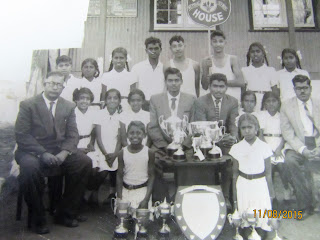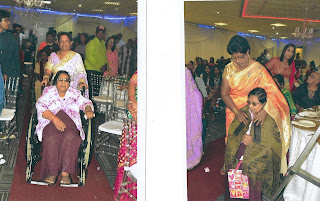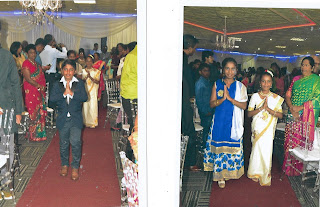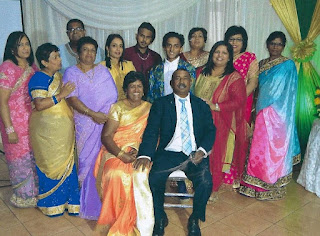(Bluebells House sports team in the early 1950s when I attended the Jhugroo Government Aided-Indian Primary School. The school was situated on the site where the Globe's Shopping Centre is now situated. Some of my pupils I can recall are (back row l to r) - Radha, Baby, Kalimuthu, Valiatham, Ismail Dhooma, Janaki ..... . (Centre) Our teacher, Prithima, .. teacher, Moon Subrayen, .. D S Maharaj. Front row: Marimuthu (Subry Govender) and colleague)
BIRTHDAY STORY INTRO:
On Wednesday, December 15 (2021) I will turn 75 and
my Ottawa social chat group asked me to write something briefly about my life
in Ottawa and life thereafter.
I wrote this short article trying to capture some
aspects of a Ottawa resident.
SUGAR CANE FIELDS OF OTTAWA SHAPED MY LIFE AS A
SOCIALLY AND POLITICALLY CONSCIOUS JOURNALIST
I was born in the historical area of Cato Manor in
Durban and after a few years in Isipingo, our family moved to Munn Road in
Ottawa.
My father, Subramoney Munien, who worked at Unilever
for more than 40 years, and mother, Salatchie, who worked at Flash Clothing, struggled
all their lives to bring up seven children and later two adopted children.
My siblings are Ambiga, the eldest who is now settled
in Phoenix; Nanda, now in Sea Tides; Sydney, now in Johannesburg; Violet, now
in Merebank and moving to Johannesburg in January; Nelson (now late) stayed in
Tongaat; and Childie, who is now in Verulam.
My adopted brother, Mashla Marimuthu, who was born in
Blackburn estate, is now late; and Angela, who belonged to the Buddha family who
used to stay on the Main Road, near the Hans shopping centre, is now settled in
Kharwastan, near Chatsworth.
(Ottawa boasted a number of top class footballers. Here in this photo in the mid 1960s members and supporters of the Ottawa United Football Club at the Verulam Recreation ground)
Our immediate neighbours in Munn Road were the
grand-parents of Atom and Molly, who cultivated a huge mango plantation; Sukiya
and Johnny; Narain Naicker and family; Gita and her family; Jack Naidoo, Tip
Top, George and family; Kandasamy Naidoo and family; Vasie Govender and family;
Beacon and family; the John Chetty family; the Bugwandeen family; the fat Harry
family; Pat and family; Gokool Dutt and family; Barry, Krish and the rest of the
Naicker family; the Zadick Yagambaram family and several others whose full
names escapes me now.
(Some of the early friends of Ottawa (l to r): Rusty Maharaj, Mohan, Steven, Adam Sayed (who lived in a house at the corner of Munn and School roads - the house is still there and his sisters live in it), and Sam)
Most of us as youngsters first attended the old
Jhugroo school, which was situated where Globes Shopping Centre is now in
operation; and the new school, right near to our tin house in Munn Road.
After completing my standard six at Jhugroo, I
attended the Verulam High School where I completed by matric in 1964.
While still growing up as a young boy in Ottawa and
working as a labourer at the Ottawa Sugar Estate during the school holidays, I
became aware of the social and political oppression of that time.
One incident stirred my socio-political-economical
interest while Veeran Maharaj, George Naidoo and myself were busy on the third
day of our work in the sugar cane fields situated not far from where the home
of the late K C George Moonsamy is still situated.
It was sometime in March 1961. I heard a loud voice
and upon checking to see what was going on, I saw the supervisor shouting,
screaming and even using swear words at some of the women workers.
I questioned his unacceptable attitude but was told
if I was not happy with what was going on, I should leave with my friends.
This gave us no alternative but to return to our
village. On the third day we were paid 90 cents each for working for three days.
This unfortunate incident in the sugar cane field had
a significant effect on me and aroused my interest in the sugar cane estates
and its inhabitants as I began to complete my high school education. The school
principal, Mr Simon David, and three teachers, a Mr Kissoon, Mr K P Rajoo and
Mr P A Pillay also awakened a consciousness in me about the arrival of our
forefathers and mothers as indentured labourers and the
socio-economical-political climate prevailing at that time.
And when I completed my matriculation in 1964, I
became attracted to journalism and worked for the Daily News, Sunday Tribune,
Natal Mercury, Post, Graphic and Leader as a free-lancer before joining the
Daily News as a full-time reporter in March 1973.
While working at the Daily News, I completed my
degree in Political Science and International Relations at UNISA. At the same
time, I became involved in the establishment of the Union of Black Journalists
(UBJ) after the June 1976 Soweto uprisings. Later after the UBJ was banned in
October 1977, I became involved in the establishment of the Association of
Democratic Journalists (ADJ), Writers Association of South Africa(WASA) and the
Media Workers Association of SA(MWSA).
At this time, I was seen as a “coolie media
terrorist” by the former security police and I was banned and house-arrested
for three-and-half years. This prohibited me from continuing with my work as a
journalist and heading the Press Trust of SA News Agency, which I established
in December 1983. I was also denied my passport for 10 years from 1980 to 1990.
The denial of a passport prevented me from taking up
a scholarship at the University of Edinburgh in Scotland to study for my
post-graduate in Political Science and International Relations. I was also
prevented from taking up a two-year assignment at Radio Deutsche Welle (Voice
of Germany) in Koln.
After my banning order expired in mid-1984, I
continued with my work as a foreign correspondent for the Press Trust of India
(PTI) and a number of international radio stations, including the BBC, Radio
Deutsche Welle, Radio Nederlands, Radio France Internationale and radio
stations in America, Canada, Australia, Singapore, and New Zealand.
All my work revolved around the struggles for a free,
non-racial and democratic South Africa.
When Nelson Mandela was released in February 1990, I
was there in Cape Town to report on his release to PTI and other media outlets
around the world. And when the new democratic order came into being in April
1994, I was there in Johannesburg-Pretoria to report on Mandela being installed
as the first democratic president.
I also accompanied Mandela during an official visit
to India in 1995 after I joined the SABC as a senior political correspondent. And
when Mandela passed on in 2012, I was there in Pretoria and Umtata to report
his passing to PTI and the world. I also travelled with other journalists to
cover the visit of Thabo Mbeki to India in 2 000. And in 2009 I was assigned by
the SABC to cover the Tsunami disaster in southern India.
In 2010 I was invited by the Government of India to
attend the conference of Indian Diaspora in Chennai. Indian-origin journalists
from other parts of the world also attended the Diaspora conference.
During the early 1980s, I initiated the establishment
of our extended Muniamma Family Social Club. The family social club was named
after my grand-mother, Mrs Muniamma Coopoosamy Govender, who was born in the
Blackburn Sugar estate, where our great-grand-parents toiled as indentured
labourers after arriving from India in 1881.
The establishment of the Muniamma Family Social Club
encouraged me to research our roots and this led to me and my wife, Thyna,
visiting the little villages of Damal and Navalpore in the North Arcott
District of Tamil Nadu in March 1990.
Our family history book, Flight of Young Lovers, was
completed in 2017 and the book was launched
at an elaborate extended family gathering of more than 200 members at
the Enchanted Gardens Conference Centre at the old Louis Botha international
airport, near Isipingo, on April 28 2018.
I retired from active journalism in 2019, and am
currently researching my work during the journalist years in my efforts to
capture in a book my life story. I am also enjoying playing golf at least three
times a week. My wife, Thyna, also plays golf and we travel around to participate
in a number of tournaments.
We have one son, Kennedy Pregarsen, and two
daughters, Seshini and Nomzamo, and six grand-children. They are all living and
working in Johannesburg.
Our eldest twin grandsons, Dasi and Diva, have just
celebrated their 20th birthday.
(Two friends, Bobby and , and I travelled to Maputo in Mozambique (Lourenzo Marques ) in the late 1970s for a holiday. We travelled to LM in Bobby's car)
(While searching for photos for this article I came across this picture of the young daughter (left) of Mr Naningar, who lived with his large family in Maharaj Road near the new school and the home of Mr Parthab. The young lady, her name escapes me, was the sister of Tuba, Moga and other siblings. The other lady's name in the picture also escapes me.)
When growing up in Ottawa in the late 1950s, 1960s,
1970s and 1980s, we came to know the whole of Ottawa as One Big Family. The
relationship we enjoyed then is something to be proud of and admired. We used
to fetch water from the river in two huge drums attached to a banga, enjoyed
fishing in the nearby clean and environmentally-friendly river, played soccer
on the sandy river field, swam in the heavy ponds in the river and generally
enjoyed everything that the river gave us.
On one occasion, however, I nearly drown in deep
water near the railway line bridge. Fortunately, my brother, Nanda, was
standing nearby and he jumped in and pulled me out.
I was lucky.
Ottawa was also a village where we could visit our
neighbours’ homes and the homes of others living in the then Tin Town, Central,
and Uplands with all the hospitality and respect. Over the years my siblings and I came to know
each and every family that lived in Ottawa at that time.

(Members of the Ottawa branch of the SA Red Cross Society taking a break at the beach. (From L to R) : Barney, Mr , Chotoo, Dicky Maharaj, Ramnanan, Mr Padaychee , Marimuthu (Subry Govender) and Mr Moses)
As a young boy I became a member the Ottawa branch of the South African Red Cross Society. Some of the people I remember who were members were Mr Dicky Maharaj, Mr Ramnanan, who owned the shop in Uplands, Mr Chotoo, who lived near Mr Ramnan’s shop, Mr Barney of bottom Munn Road; Mr Moses, who lived near the top shop; and a gentleman who lived with his family on a property owned by George Singh’s family in School Road.
We also took an active interest in football and I
played and managed one of the Ottawa teams that played in the Verulam Football
Association in the early days. At one time in the 1980s I also headed the Verulam
Football Association for a period of two years.
We all grew up with kindness and
friendliness for one another. I wish we could enjoy that type of life once
again. Ends – subrygovender@gmail.com Dec 12 2021

